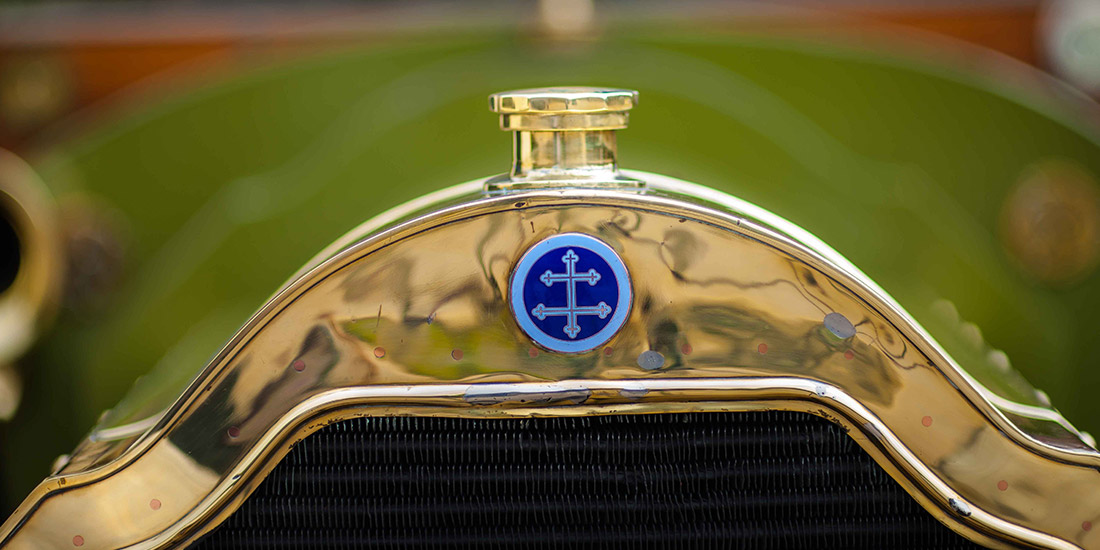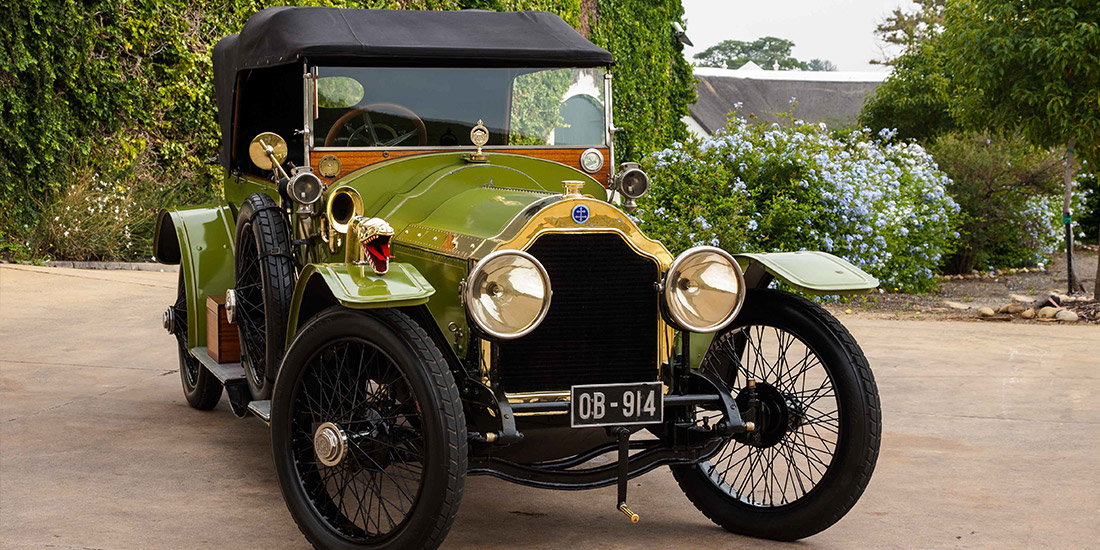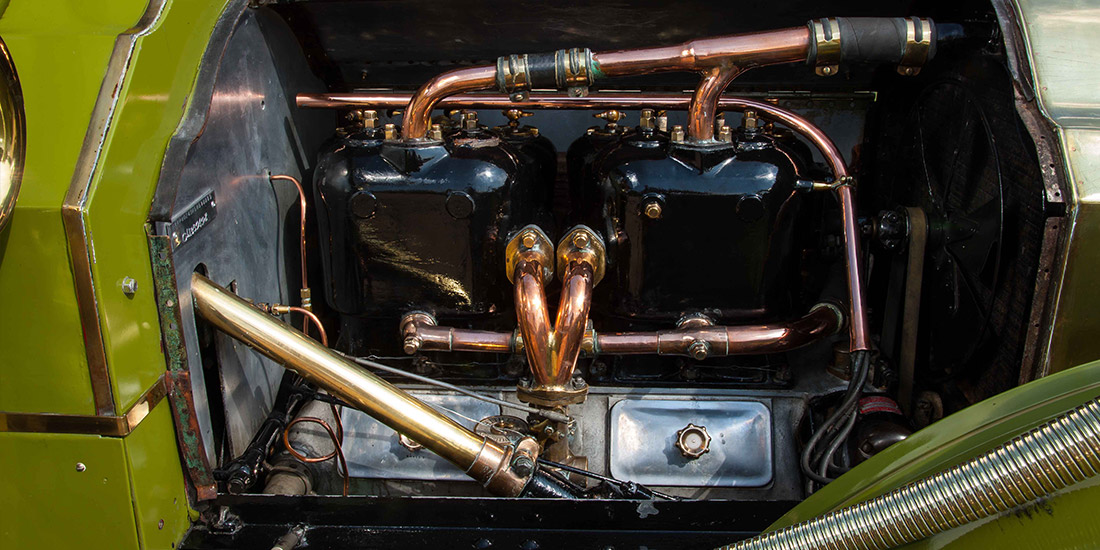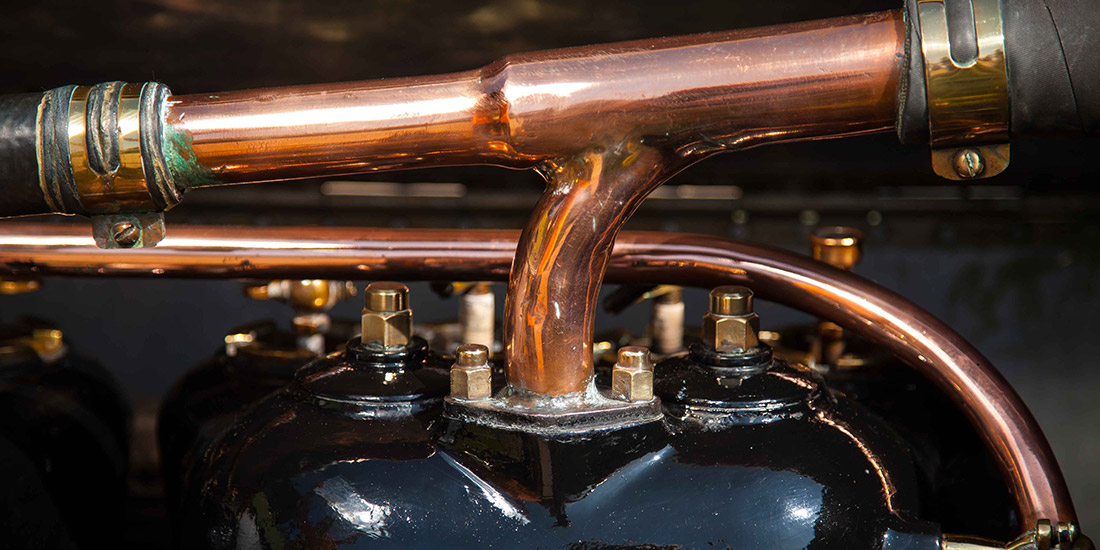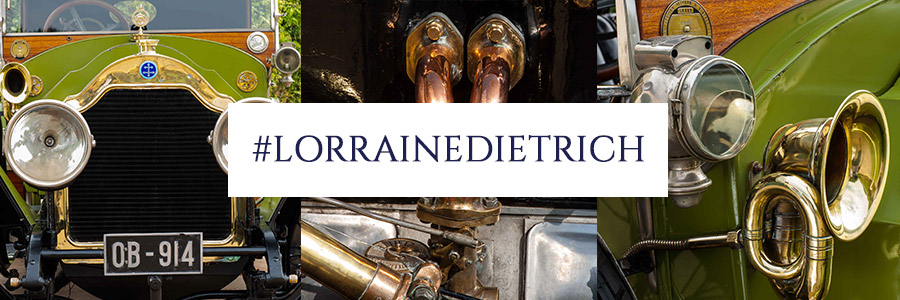INTRODUCING THE
LORRAINE DIETRICH
LORRAINE-DIETRICH was one of the motoring history’s pioneering brands, and ranked amongst the top half-dozen makes in the early 1900s. Its origins began in 1897 when railway carriage manufacturers De Dietrich started building cars at its plant in Lunéville, a subdivision of the Lorraine region of France. But in 1904 an autonomous division of the company began selling a licence-built Turcat-Méry as a De Dietrich, so the founders changed their product’s name to Lorraine-Dietrich.
The company’s quality reputation was partly due to its reasonably successful participation in competition. This 1911 tourer has a 5,7-litre four-cylinder engine rated at 28 horsepower. It was one of the first Lorraine-Dietrich’s to adopt a Cardan-shaft transmission rather than being chain driven.
This car, with its dramatic serpent horn, was first owned by the wealthy diamond-mining magnate Charles Newberry and was part of a magnificent 20000-hectare estate and private museum called Prynnsberg in what was then the Eastern Free State.
Top speed
Unknown
Transmission
4-speed cardan shaft
Power
28 HP
Engine
4-cylinder side valve
TECHNICAL
SPECIFICATIONS
Year |
1911 |
Country of Origin |
France |
Engine Type |
4-cylinder side valve |
Power Output |
28 HP |
Transmission Type |
4-speed cardan shaft |
Braking System |
drum brakes at the back |
Top speed |
Unknown |




